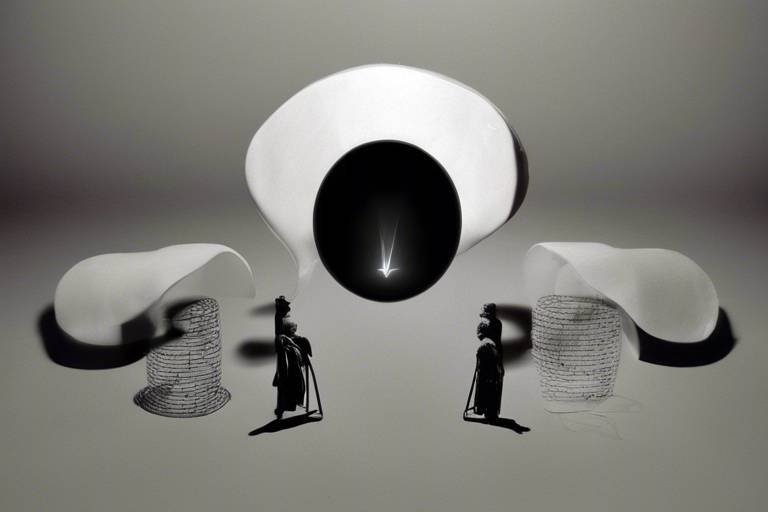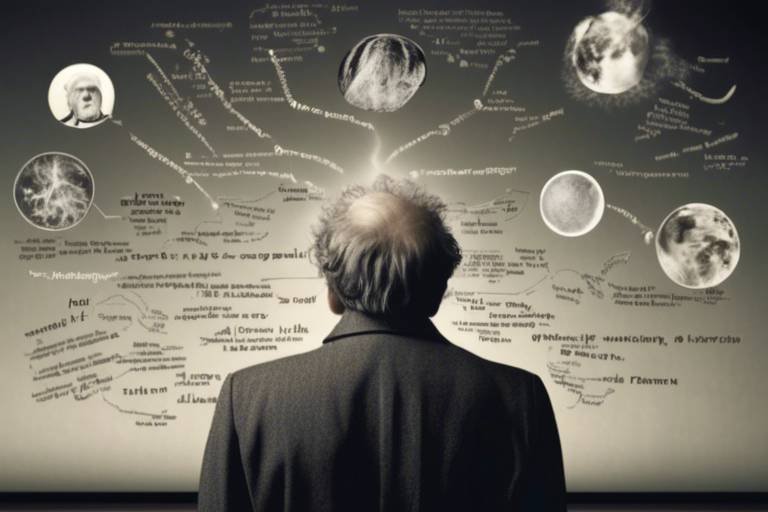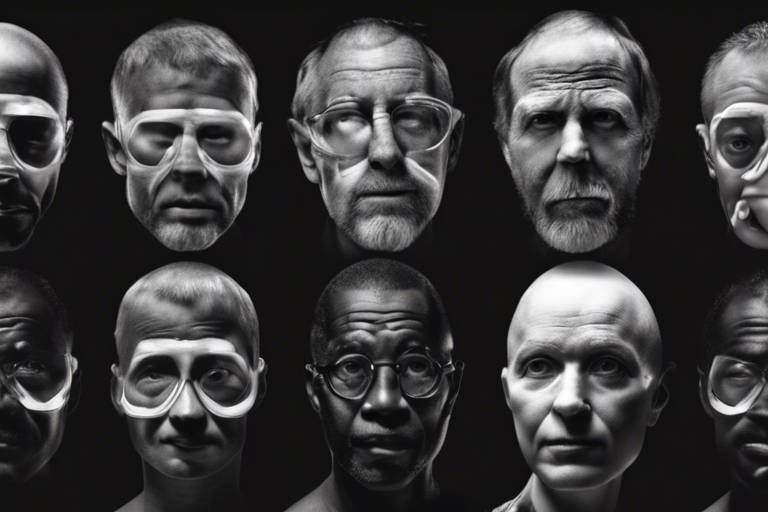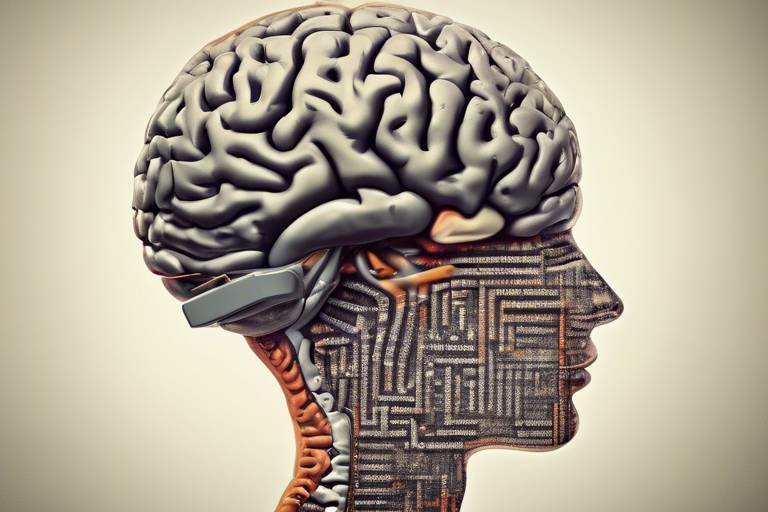Philosophy and Physics - What Binds them Together?
Have you ever pondered the mysteries of the universe and found yourself at the intersection of philosophy and physics? This intriguing relationship is not just an academic curiosity; it is a profound exploration of existence, reality, and the very fabric of the cosmos. At first glance, these two fields may seem worlds apart—one steeped in abstract thought and the other rooted in empirical evidence. However, they are intricately linked, each influencing and shaping the other in remarkable ways.
Philosophy provides the questions, while physics seeks the answers, creating a dynamic dialogue that has evolved for centuries. Think of it like a dance: philosophy leads with its inquiries about why and what, while physics follows, offering insights into the how of the universe. This synergy not only enriches our understanding of the physical world but also deepens our appreciation of the philosophical implications of scientific discoveries.
Consider the nature of time, a concept that both disciplines grapple with. In physics, time is measured and quantified, yet in philosophy, it raises questions about the nature of existence and the flow of reality. Are past, present, and future merely constructs of our perception? This is where the two fields converge, igniting discussions that challenge our understanding of the universe.
Moreover, the relationship between philosophy and physics has historical roots. Great thinkers like Aristotle and Einstein have traversed both domains, illustrating how philosophical frameworks have paved the way for groundbreaking scientific theories. As we delve deeper into this article, we will uncover how these intellectual giants have shaped our contemporary understanding of reality, existence, and the universe itself.
In essence, the bond between philosophy and physics is a tapestry woven from threads of inquiry, discovery, and understanding. As we navigate this complex relationship, we will explore key philosophical concepts that inform physical theories, the implications of quantum mechanics, and the role of thought experiments in both fields. So, buckle up as we embark on this fascinating journey through the realms of thought and science!

The Historical Context
Understanding the historical development of philosophy and physics reveals a rich tapestry of ideas that have shaped our comprehension of the universe. From ancient civilizations to modern scientific advancements, the interplay between these two disciplines has been profound. Early thinkers like Aristotle were not just philosophers; they were also pioneers in the study of the natural world, laying the groundwork for what would eventually become physics. Aristotle’s concept of causality, for instance, was fundamental in shaping the way we understand cause and effect in both philosophical and scientific contexts.
As we moved into the Renaissance, figures like Galileo Galilei and Isaac Newton began to challenge long-held philosophical notions with empirical evidence. Galileo's use of the telescope not only revolutionized astronomy but also emphasized the importance of observation in scientific inquiry. Newton's laws of motion and universal gravitation provided a framework that merged philosophical reasoning with mathematical precision, thus creating a new paradigm for understanding the physical world.
The Enlightenment further bridged the gap between philosophy and physics, as thinkers like Immanuel Kant sought to reconcile the empirical findings of science with metaphysical questions about existence and knowledge. Kant argued that our understanding of the universe is shaped by both our sensory experiences and the innate structures of our mind. This philosophical stance opened the door for a more integrated approach to studying reality, where both physical laws and philosophical inquiries could coexist.
In the 19th and 20th centuries, the advent of modern physics introduced revolutionary concepts that challenged traditional philosophical views. The rise of relativity and quantum mechanics posed significant questions about the nature of reality itself. Einstein's theory of relativity reshaped our understanding of time and space, while quantum mechanics introduced the idea that particles can exist in multiple states simultaneously. These developments not only transformed physics but also prompted philosophers to reevaluate their understanding of existence, causality, and the nature of knowledge.
In summary, the historical context of philosophy and physics is characterized by a dynamic interplay of ideas that have evolved together over centuries. Each major scientific breakthrough has often been accompanied by philosophical reflection, leading to a deeper understanding of the universe and our place within it. As we continue to explore the cosmos, the relationship between these two fields remains more relevant than ever, inviting us to ponder profound questions about reality, existence, and the nature of knowledge.

Key Philosophical Concepts in Physics
When we dive into the world of physics, we often think of equations, experiments, and data. However, lurking beneath the surface are philosophical concepts that shape our understanding of the universe. These ideas are not just abstract musings; they play a crucial role in how we interpret physical theories and the nature of reality itself. One of the most significant concepts is causality, which posits that every effect has a cause. This fundamental principle is woven into the fabric of scientific inquiry, guiding physicists as they attempt to unravel the mysteries of the cosmos.
Another key concept is determinism, the idea that every event or state of affairs is the result of preceding events according to natural laws. This notion challenges our understanding of free will and the unpredictability of certain quantum phenomena. Imagine a world where every action is predetermined, like a giant cosmic clockwork. Yet, the advent of quantum mechanics has thrown a wrench into this mechanical worldview, suggesting that at the subatomic level, randomness plays a significant role. This intersection of determinism and randomness creates a fascinating tension that philosophers and physicists alike grapple with.
Furthermore, the philosophical inquiry into metaphysics provides a foundational context for physical theories. Metaphysics asks profound questions about existence and reality: What is the nature of the universe? What does it mean for something to exist? These inquiries are not just academic; they influence how physicists frame their theories and interpret their findings. For instance, the debate over whether the universe is fundamentally composed of particles or fields leads to different interpretations of physical phenomena.
In addition to metaphysics, the study of ontology—the nature of being—holds significant implications for physics. Ontology explores the categories of being and their relationships. In physics, this translates to understanding what entities exist in the universe and how they interact. For example, consider the debate over whether light is a particle or a wave. This ontological question has profound implications for how we understand light and its properties, impacting everything from quantum mechanics to general relativity.
Finally, we cannot overlook the importance of epistemology, the study of knowledge itself. Epistemology examines how we acquire, validate, and justify scientific knowledge. In physics, this involves scrutinizing the methodologies employed in experiments and the interpretations of data. How do we know what we know? This question is crucial, especially in an age where scientific paradigms shift rapidly. Philosophical scrutiny of scientific practices helps ensure that our understanding of the universe is not just based on empirical evidence but also on sound reasoning and logical coherence.
In summary, the interplay between philosophy and physics is rich and complex. The philosophical concepts of causality, determinism, metaphysics, ontology, and epistemology are not just abstract ideas; they are pivotal in shaping our understanding of the physical world. As we continue to explore the universe, these concepts will remain at the forefront of scientific inquiry, guiding physicists in their quest to uncover the fundamental truths of existence.
- What is the relationship between philosophy and physics? Philosophy provides the foundational concepts that shape our understanding of physical theories and phenomena.
- How does causality influence scientific inquiry? Causality is a fundamental principle that guides physicists in understanding the relationships between events in the universe.
- What role does epistemology play in physics? Epistemology examines how we acquire and validate knowledge in physics, ensuring scientific methodologies are sound.
- Why is ontology important in physics? Ontology helps physicists understand the nature of entities within the universe and how they interact.

Metaphysics and Physics
When we dive into the world of metaphysics and physics, we're stepping into a realm where the boundaries of existence and the universe blur into a fascinating dance of ideas. Metaphysics, at its core, is the philosophical exploration of the fundamental nature of reality, encompassing questions about what exists and the nature of those existences. On the other hand, physics seeks to understand the universe through empirical observation and mathematical modeling. But how do these two seemingly disparate fields connect? The answer lies in the foundational questions that both disciplines attempt to address.
One of the key intersections between metaphysics and physics is the concept of reality. While physics provides us with the tools to measure and describe physical phenomena, metaphysics prompts us to ask deeper questions: What does it mean for something to exist? Is our perception of reality shaped by our consciousness, or is it an objective entity that exists independently of our minds? These questions are not merely academic; they have profound implications for how we understand the universe and our place within it.
For instance, consider the philosophical implications of quantum mechanics. The discovery that particles can exist in multiple states simultaneously challenges the classical notion of a single, objective reality. Here, metaphysics steps in to grapple with the implications of such findings. Are we merely observers in a universe that exists regardless of our perception, or does our observation play a crucial role in shaping reality? This interplay between observation and reality is a classic metaphysical dilemma that continues to fuel debates among scientists and philosophers alike.
Moreover, metaphysical inquiries often influence the formulation of physical theories. For example, the concept of causality—the idea that every effect has a cause—has been a cornerstone of scientific thought. Yet, as we delve deeper into quantum mechanics, we encounter scenarios where causality appears to be violated. This raises the question: Is our understanding of causality itself a metaphysical assumption that needs reevaluation? Such questions compel physicists to reconsider the assumptions underlying their theories, illustrating the profound impact of metaphysical thought on scientific inquiry.
In addition to causality, another critical area where metaphysics and physics intersect is in the realm of time. What is time? Is it a linear progression of events, or is it something more complex? Theories such as relativity have transformed our understanding of time, suggesting that it is not an absolute entity but rather intertwined with space. This idea, while grounded in physics, invites metaphysical questions about the nature of time itself and how it relates to existence. Are past, present, and future merely constructs of our consciousness, or do they have an objective reality?
Ultimately, the relationship between metaphysics and physics is a dynamic interplay that enriches both fields. As we continue to explore the cosmos and uncover its mysteries, the questions posed by metaphysics will remain essential in guiding our understanding of physical phenomena. The dialogue between these two disciplines not only enhances our grasp of the universe but also deepens our appreciation for the complexities of existence itself.
- What is the main difference between metaphysics and physics?
Metaphysics explores the fundamental nature of reality and existence, while physics focuses on empirical observations and the laws governing the physical universe. - How does quantum mechanics relate to metaphysical questions?
Quantum mechanics challenges classical notions of reality, leading to philosophical inquiries about the nature of existence and the role of observation in shaping reality. - Can metaphysical assumptions influence scientific theories?
Yes, metaphysical concepts such as causality and the nature of time can shape the formulation and interpretation of scientific theories.

Ontology in Physics
Ontology, the philosophical study of being and existence, plays a crucial role in the realm of physics. It prompts us to ask fundamental questions about the nature of entities that populate our universe. When physicists propose theories about particles, forces, and the very fabric of space-time, they are not just crunching numbers; they are making ontological claims about what exists. For instance, consider the debate surrounding the existence of virtual particles. These particles, which are said to pop in and out of existence, challenge our traditional notions of reality and compel us to rethink what we consider "real" in the physical world.
At its core, ontology in physics is about understanding the categories of being and how they relate to physical theories. It examines questions such as: What is a particle?, What constitutes a force?, and Is space-time itself an entity? These inquiries are not merely academic; they influence how we interpret experimental data and develop new theories. For example, the ontological status of waves and particles in quantum mechanics leads to different interpretations of what it means for something to exist in a quantum state.
Moreover, ontology helps to bridge the gap between abstract mathematical formulations and the physical world we observe. It provides a framework for understanding how theoretical constructs, like strings in string theory or fields in quantum field theory, relate to the entities we can measure and observe. Without a solid ontological foundation, the theories we build might become mere mathematical curiosities, disconnected from the reality they aim to describe.
To illustrate the significance of ontology in physics, let's consider a few key ontological questions:
- What is the nature of particles? Are they fundamental building blocks, or are they merely manifestations of deeper entities?
- How do we define the boundaries of physical systems? What does it mean for an object to interact with another?
- Is space-time a substance or a relational property? Does it exist independently of the objects within it?
These questions not only guide scientific inquiry but also shape our understanding of reality itself. As physicists continue to push the boundaries of knowledge, the ontological implications of their findings will remain a vital area of exploration. The dialogue between ontology and physics is not just a theoretical exercise; it has profound implications for how we perceive the universe and our place within it.
1. What is ontology in the context of physics?
Ontology in physics refers to the study of the nature of being and existence as it relates to physical entities and theories. It examines what kinds of things exist in the universe and how they relate to one another.
2. Why is ontology important for physicists?
Ontology is important for physicists because it provides a framework for understanding the implications of their theories. It helps clarify what is being claimed about the nature of reality and existence in physical models.
3. How does ontology influence scientific theories?
Ontology influences scientific theories by shaping the questions researchers ask and the interpretations they make about experimental data. It can lead to different conclusions about the nature of reality based on how entities are defined and understood.
4. Can ontology change with new scientific discoveries?
Yes, ontology can evolve as new scientific discoveries challenge existing notions of existence and reality. As our understanding of the universe deepens, so too does our ontological framework.

Epistemology and Scientific Knowledge
When we dive into the world of epistemology, we are essentially asking ourselves a fundamental question: How do we know what we know? This inquiry is particularly crucial in the realm of scientific knowledge, where the quest for understanding the universe hinges on our methods of acquiring and validating information. Epistemology, the philosophical study of knowledge, not only shapes our comprehension of scientific theories but also influences the methodologies that scientists employ in their research.
At its core, epistemology examines the nature, sources, and limits of knowledge. In science, this translates into a rigorous framework through which we can assess the validity of our findings. For instance, consider the scientific method, a systematic approach that involves observation, experimentation, and the formulation of hypotheses. This method is not just a procedural tool; it is deeply rooted in epistemological principles. Scientists must ask themselves whether their observations are reliable and whether their conclusions are justified based on the evidence gathered.
Moreover, epistemology introduces us to various theories of knowledge, such as empiricism and rationalism. Empiricism posits that knowledge comes primarily from sensory experience, while rationalism argues that reason and intellect are the main sources of knowledge. In the context of physics, these theories play a pivotal role in how we interpret data and develop theories. For example, the debate between empiricists and rationalists can be seen in the contrasting views on quantum mechanics, where empirical evidence often challenges our intuitive understanding of reality.
To illustrate the interplay between epistemology and scientific knowledge, let's consider a few key questions that scientists grapple with:
- What constitutes valid evidence? Is it merely data collected from experiments, or does it also include theoretical predictions?
- How do we differentiate between correlation and causation? This distinction is vital in drawing meaningful conclusions from scientific studies.
- Can knowledge be absolute, or is it always subject to revision? This question highlights the evolving nature of scientific understanding.
These questions underscore the importance of epistemological considerations in shaping scientific discourse. They remind us that scientific knowledge is not static; rather, it is a dynamic process that evolves as new evidence emerges and as our methods of inquiry improve. Furthermore, the philosophical underpinnings of knowledge compel scientists to remain critical and reflective about their assumptions and methodologies.
In summary, epistemology serves as a foundational pillar for scientific knowledge, guiding researchers in their quest for understanding. By interrogating how we acquire knowledge and what it means to know something, we can better appreciate the complexities of scientific inquiry. As we continue to explore the universe's mysteries, the relationship between epistemology and science will undoubtedly remain a rich field for exploration and discussion.
- What is epistemology? Epistemology is the branch of philosophy concerned with the theory of knowledge, exploring its nature, sources, and limits.
- How does epistemology relate to science? Epistemology informs the methods and validation processes that scientists use to acquire and interpret knowledge.
- Why is the scientific method important? The scientific method provides a systematic approach to inquiry, ensuring that conclusions are based on reliable evidence.
- Can scientific knowledge change? Yes, scientific knowledge is dynamic and can evolve as new evidence and better methodologies emerge.

Philosophical Implications of Quantum Mechanics
Quantum mechanics is not just a set of equations; it’s a mind-bending journey into the very fabric of reality. At its core, quantum mechanics challenges our classical intuitions about the universe. For instance, the concept of superposition suggests that particles can exist in multiple states at once until they are observed. This raises a profound question: What does it mean to observe something? Is the act of observation itself shaping reality? Such inquiries propel us into the realm of philosophy.
One of the most striking philosophical implications of quantum mechanics is the challenge it poses to the notion of determinism. In classical physics, if we know the initial conditions of a system, we can predict its future states with absolute certainty. However, quantum mechanics introduces an element of probability. Instead of certainties, we are left with a landscape of potentialities. This shift compels us to reconsider our understanding of causality and the nature of reality itself. Are we merely observers in a universe governed by chance, or is there a deeper layer of order that we have yet to uncover?
Moreover, quantum entanglement—the phenomenon where particles become interconnected regardless of the distance separating them—challenges our traditional notions of locality and separateness. This phenomenon suggests that the universe is more interconnected than we might have ever imagined. It invites us to ponder whether our understanding of space and time is fundamentally flawed. Could it be that the universe operates on principles that transcend our current philosophical frameworks?
In contemplating these implications, we find ourselves at a crossroads between science and philosophy. As physicists grapple with the mathematical intricacies of quantum theory, philosophers are tasked with unpacking the meanings behind these discoveries. This interplay raises several essential questions:
- What is the nature of reality if particles can exist in multiple states?
- How do we reconcile the randomness of quantum events with our experiences of a seemingly ordered world?
- What does it mean for something to exist if it can only be defined in relation to observation?
Ultimately, the philosophical implications of quantum mechanics extend beyond the realm of theoretical physics. They challenge us to rethink the very nature of existence, knowledge, and what it means to be a conscious observer in a universe that is constantly unfolding. As we continue to explore these questions, we find that the boundaries between philosophy and physics blur, inviting a deeper dialogue that enriches our understanding of both fields.
- What is quantum mechanics?
Quantum mechanics is a fundamental theory in physics that describes the physical properties of nature at the scale of atoms and subatomic particles. - How does quantum mechanics challenge classical physics?
Quantum mechanics introduces concepts like superposition and entanglement, which contradict classical notions of determinism and locality. - What are the philosophical implications of quantum mechanics?
It raises questions about the nature of reality, the role of the observer, and the meaning of existence itself.

The Role of Thought Experiments
Thought experiments are like mental playgrounds where philosophers and physicists alike can explore complex ideas without the need for physical experimentation. Imagine being able to conduct an experiment in your mind, free from the constraints of reality—this is the essence of thought experiments. They serve as powerful tools that allow us to examine theories, challenge assumptions, and illuminate concepts that might otherwise remain obscure.
In both philosophy and physics, thought experiments provide a unique avenue for inquiry. They help bridge the gap between abstract concepts and tangible understanding. For example, consider the famous Schrödinger's Cat thought experiment. This scenario illustrates the peculiarities of quantum mechanics by placing a cat in a box with a mechanism that has a 50% chance of killing it. Until the box is opened, the cat is considered both alive and dead—a paradox that challenges our understanding of reality and observation. This thought experiment not only raises questions about quantum states but also nudges us to reflect on the nature of existence itself.
Moreover, thought experiments often provoke discussions that lead to significant advancements in scientific and philosophical thought. They can be used to:
- Clarify complex theories
- Test the boundaries of existing knowledge
- Encourage innovative thinking
For instance, Galileo's thought experiment about falling objects laid the groundwork for modern physics. By imagining how objects of different weights would fall in a vacuum, he challenged the Aristotelian view that heavier objects fall faster. This mental exercise not only contributed to the formulation of the law of falling bodies but also exemplified the power of imagination in scientific discovery.
However, while thought experiments are invaluable, they are not without their critiques. Some argue that they can lead to conclusions that are overly abstract or disconnected from empirical evidence. Critics often point out that without physical experimentation, the validity of the conclusions drawn from thought experiments can be questionable. This highlights a fundamental tension in both philosophy and physics: the balance between theoretical exploration and empirical validation.
To illustrate the significance of thought experiments further, let's take a look at a comparison table of some famous thought experiments in philosophy and physics:
| Thought Experiment | Field | Key Concept |
|---|---|---|
| Schrödinger's Cat | Physics | Quantum Superposition |
| Galileo's Falling Objects | Physics | Acceleration due to Gravity |
| The Ship of Theseus | Philosophy | Identity and Change |
| Hilbert's Hotel | Mathematics/Philosophy | Infinity |
In conclusion, thought experiments play a crucial role in advancing our understanding in both philosophy and physics. They challenge our perceptions, encourage deeper inquiry, and often lay the groundwork for future scientific theories. As we continue to explore the boundaries of knowledge, thought experiments will undoubtedly remain a vital tool in our intellectual arsenal.
Q: What is a thought experiment?
A thought experiment is a hypothetical scenario that is used to explore the implications of a theory or concept, often conducted in the mind without physical experimentation.
Q: Why are thought experiments important?
They help clarify complex ideas, test existing theories, and foster innovative thinking in both philosophy and physics.
Q: Can thought experiments lead to valid conclusions?
While thought experiments can provide valuable insights, their conclusions should be critically evaluated against empirical evidence and practical applicability.

Famous Thought Experiments
Thought experiments serve as a fascinating bridge between the realms of philosophy and physics. These intellectual exercises allow us to explore complex ideas without the need for physical experimentation. They challenge our understanding and often lead to profound insights. Let's dive into some of the most famous thought experiments that have shaped both disciplines.
One of the most iconic thought experiments is Schrödinger's Cat. Proposed by physicist Erwin Schrödinger in 1935, this paradox illustrates the strange nature of quantum mechanics. Imagine a cat placed in a sealed box with a radioactive atom, a Geiger counter, and a vial of poison. If the atom decays, the Geiger counter triggers the release of the poison, resulting in the cat's demise. According to quantum mechanics, until we open the box and observe the system, the cat is both alive and dead simultaneously. This paradox raises critical questions about observation, reality, and the nature of existence itself.
Another captivating thought experiment is Newton's Bucket, formulated by Isaac Newton in his quest to understand motion and absolute space. Picture a bucket filled with water suspended from a rope. When the bucket is spun, the water inside begins to climb the sides, creating a concave surface. Newton argued that this phenomenon demonstrates the existence of absolute space, as the water’s behavior cannot be explained by relative motion alone. This thought experiment invites us to ponder the fundamental nature of space and motion.
Then there’s Maxwell's Demon, introduced by James Clerk Maxwell in 1867. This thought experiment challenges the second law of thermodynamics. Imagine a tiny demon that controls a door between two gas-filled chambers. By selectively allowing faster molecules to pass in one direction and slower ones in the other, the demon seemingly creates a temperature difference, violating the law of entropy. This paradox not only highlights the intricacies of thermodynamic principles but also raises questions about information and energy in physics.
These thought experiments are not just theoretical musings; they have real implications for our understanding of the universe. They encourage us to question our assumptions and explore the boundaries of scientific inquiry. To illustrate the impact of these thought experiments, consider the following table:
| Thought Experiment | Proposed By | Key Concept |
|---|---|---|
| Schrödinger's Cat | Erwin Schrödinger | Quantum Superposition |
| Newton's Bucket | Isaac Newton | Absolute Space |
| Maxwell's Demon | James Clerk Maxwell | Entropy and Information |
These examples illustrate how thought experiments serve as powerful tools for philosophical inquiry and scientific exploration. They compel us to confront the limits of our understanding and challenge established norms. As we delve deeper into the mysteries of the universe, thought experiments will continue to inspire and provoke thought across both philosophy and physics.
- What is a thought experiment? A thought experiment is a hypothetical scenario used to explore the implications of a concept or theory, often without the need for physical experimentation.
- Why are thought experiments important? They help clarify complex ideas, challenge assumptions, and provide insights into fundamental principles in both philosophy and physics.
- Can thought experiments lead to real scientific discoveries? Yes, many thought experiments have paved the way for significant advancements in scientific understanding and have influenced experimental research.

Critiques and Limitations
While thought experiments are often hailed as the creative lifeblood of both philosophy and physics, they are not without their . Critics argue that these mental exercises can sometimes lead to misleading conclusions, as they often rely on simplified assumptions that may not hold true in the complex tapestry of reality. For example, a thought experiment might isolate a variable to illustrate a point, yet in the real world, multiple factors interact in ways that are not easily replicated in a hypothetical scenario.
One major limitation is the contextual nature of thought experiments. They are typically crafted within specific philosophical or scientific frameworks, which may not account for new discoveries or evolving theories. As a result, a thought experiment that seemed insightful a decade ago could become obsolete as our understanding of the universe expands. This raises a critical question: are we relying too heavily on these constructs, or do they still serve a purpose in the face of scientific advancement?
Moreover, the practicality of thought experiments is often called into question. In a world that increasingly values empirical data and experimental validation, can we afford to spend time on ideas that may never be tested in a laboratory? Critics suggest that while thought experiments can inspire new theories, they might also divert attention from more tangible methods of inquiry. This is particularly relevant in physics, where experimental evidence is paramount for validating theories.
Additionally, thought experiments can sometimes lead to overgeneralizations. For instance, a scenario that illustrates a principle in a controlled setting may not translate well to the chaotic nature of the real world. This can create a false sense of certainty about the applicability of a theory. It's akin to using a model airplane to predict the flight of a full-sized jet; while both involve aerodynamics, the complexities of scale can yield vastly different results.
Furthermore, the subjective nature of thought experiments means that different thinkers can arrive at vastly different conclusions from the same scenario. This variability can lead to debates that are less about empirical evidence and more about personal interpretation, which can muddy the waters of scientific discourse. In this sense, while thought experiments can illuminate certain aspects of a theory, they can also cloud judgment by introducing bias.
Despite these critiques, it’s essential to recognize the value that thought experiments bring to the table. They serve as a bridge between abstract philosophical reasoning and concrete scientific inquiry, prompting questions that might otherwise remain unexamined. However, as we navigate the intricate relationship between philosophy and physics, it’s crucial to maintain a balanced perspective on the role of thought experiments, acknowledging both their potential and their pitfalls.
- What is a thought experiment? A thought experiment is a hypothetical scenario used to explore the implications of a theory or concept without the need for physical experimentation.
- Why are thought experiments important in philosophy and physics? They allow for the exploration of complex ideas, often leading to new insights and questions that can drive further inquiry.
- What are some well-known thought experiments? Famous examples include Schrödinger's Cat in quantum mechanics and the Trolley Problem in ethics.
- What are the limitations of thought experiments? They can be overly simplistic, context-dependent, and may lead to subjective interpretations, which can hinder scientific progress.

Future Directions: Bridging Philosophy and Physics
The intersection of philosophy and physics is a dynamic and evolving landscape, ripe with opportunities for exploration and discovery. As we look to the future, the collaboration between these two fields promises to deepen our understanding of the universe and the fundamental questions surrounding existence. One of the most exciting prospects is the potential for new theoretical frameworks that can integrate philosophical insights with cutting-edge scientific research. Imagine a world where metaphysical concepts inform the development of new physical theories, leading to breakthroughs that reshape our understanding of reality.
As we delve into the future, we can identify several key areas where philosophy and physics can continue to bridge the gap:
- Consciousness and Quantum Mechanics: The relationship between consciousness and the physical world is an area where philosophical inquiry can provide valuable insights. Questions about the nature of observation and its impact on quantum phenomena are ripe for exploration.
- Ethics in Scientific Advancements: With advancements in technology, particularly in fields like artificial intelligence and biotechnology, ethical considerations become paramount. Philosophers can help physicists navigate the moral implications of their work, ensuring that scientific progress aligns with human values.
- Cosmology and Existential Questions: As physicists explore the origins and fate of the universe, philosophical questions about existence, purpose, and the nature of reality become increasingly relevant. The dialogue between these disciplines can lead to a richer understanding of our place in the cosmos.
Moreover, the rise of interdisciplinary research programs is paving the way for innovative collaborations between philosophers and physicists. Universities and research institutions are beginning to establish dedicated centers that focus on the philosophy of science, fostering an environment where both fields can engage in meaningful dialogue. These centers can serve as incubators for new ideas, where philosophers can challenge physicists’ assumptions and vice versa, leading to a more holistic understanding of complex phenomena.
In addition to academic collaborations, public engagement is essential for bridging the gap between philosophy and physics. Popular science communication can play a crucial role in demystifying complex concepts and making them accessible to a broader audience. By presenting philosophical questions alongside scientific discoveries, we can inspire curiosity and encourage people to ponder the deeper implications of what they learn.
As we navigate the future, it’s crucial to remain open to the unexpected. Just as past thinkers like Einstein and Heisenberg revolutionized our understanding of physics through their philosophical inquiries, today’s researchers can similarly challenge the status quo. By embracing uncertainty and exploring the unknown, we can unlock new avenues of thought that may redefine our understanding of both the physical universe and our place within it.
- What is the relationship between philosophy and physics?
Philosophy and physics intersect in their exploration of fundamental questions about existence, reality, and the nature of the universe. Philosophical concepts often inform scientific theories, while physical discoveries can raise new philosophical inquiries. - How can thought experiments contribute to both fields?
Thought experiments allow philosophers and physicists to explore complex ideas and test hypotheses without the need for physical experimentation. They can illuminate theoretical possibilities and challenge existing paradigms. - What are some ethical considerations in physics?
As physics advances, ethical considerations regarding the implications of scientific discoveries, such as in quantum computing or genetic engineering, become crucial. Philosophers can help guide these discussions to ensure ethical standards are met.
Frequently Asked Questions
- How do philosophy and physics influence each other?
Philosophy and physics are deeply intertwined, influencing each other's development and understanding of reality. Philosophy provides the foundational questions that guide scientific inquiry, while physics offers empirical data that can challenge or support philosophical theories. Together, they create a richer understanding of existence and the universe.
- What role do thought experiments play in both fields?
Thought experiments are vital tools in both philosophy and physics. They allow thinkers to explore complex ideas without the need for physical experimentation. By imagining scenarios, philosophers and physicists can test the limits of theories and concepts, leading to deeper insights and sometimes groundbreaking discoveries.
- What are some famous thought experiments in philosophy and physics?
Some well-known thought experiments include Schrödinger's Cat, which illustrates the peculiar nature of quantum mechanics, and the Ship of Theseus, which raises questions about identity and change. These thought experiments have significantly shaped our understanding of fundamental concepts in both fields.
- How does metaphysics relate to physics?
Metaphysics deals with the fundamental nature of reality and existence, providing a backdrop for physical theories. It addresses questions about what exists and the nature of those existences, thereby influencing how physicists interpret their findings and the implications of their work.
- What philosophical questions arise from quantum mechanics?
Quantum mechanics challenges classical ideas of determinism and reality, leading to profound philosophical questions about observation, existence, and the nature of reality itself. Concepts such as superposition and entanglement force us to reconsider what we know about the universe and our place within it.
- Are there any critiques of thought experiments?
Yes, while thought experiments are valuable for exploring ideas, they face critiques regarding their practicality and relevance. Critics argue that they can oversimplify complex issues and may not account for real-world variables, leading to conclusions that might not hold up under empirical scrutiny.
- What is the future of the relationship between philosophy and physics?
The future looks promising for the collaboration between philosophy and physics. As both fields evolve, they will continue to address new questions that lie at their intersection, fostering a deeper understanding of the universe and our existence within it.



















